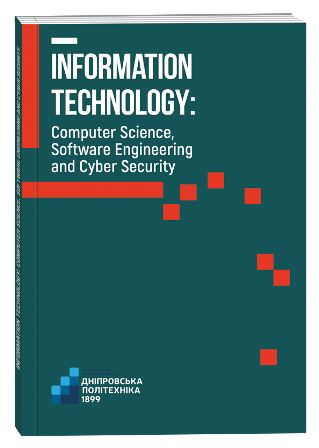MICROSERVICE OF FORECASTING MODELS CLOUD STORAGE AND DATA EXCHANGE AT THE DECISION SUPPORT SYSTEM FOR HYBRID POWER NETWORK MANAGEMENT
DOI:
https://doi.org/10.32782/IT/2024-1-14Keywords:
cloud technologies, microservice, neural network, prediction models, object storage, data integration, decision support.Abstract
The purpose of the study is to develop a microservice for storing forecasting models used in the decision support system for energy management of hybrid power grids and their metadata. This will help organize forecasting models when they are stored and increase the efficiency of managing forecasting models in cloud storage. Methodology. This work uses the methodology of system analysis, design of information systems, organization of data and file storage in cloud storage. The prototyping method was used for the development and testing of the microservice, namely the software implementation of the microservice prototype based on the RESTful API. Microservice deployment was done using containerization through Docker. The scientific novelty of the study consists in the development of a new architectural solution for the storage and management of prediction models placed in the S3 cloud storage. The architecture of the storage and data exchange subsystem was designed in the form of a microservice using the RESTful architectural template. Conclusions. The following results were achieved. The S3 object storage of forecasting models have been developed, which corresponds to the file storage architecture of cloud providers. A microservice has been developed that implements the API interface for processing requests to the storage of prediction models and provides management of the forecasting models stored in the storage. The developed microservice will be integrated with the decision support system for power grid management and can be used both locally and deployed on the platforms of leading cloud service providers. The microservice was tested using neural network forecasting models of various types of electricity consumption, which confirmed its functionality.
References
Оstergaard Poul, Duic Neven, Noorollahi Younes, Kalogirou Soteris. Renewable energy for sustainable development. Renewable Energy. 2022. Vol. 199. P. 1145–1152. https://doi.org/10.1016/j.renene.2022.09.065
Кириленко, О. В., Снєжкін, Ю. Ф., Басок, Б. І., Базєєв, Є. Т. Енергетика, наука та інженерія: сучасний стан і виклики розвитку. Вісник НАН України. 2023. № 4, с. 3–20. https://doi.org/10.15407/visn2023.04.003
Obukhov S., Ibrahim A., Tolba M.A., M.El-Rifaie A. Power balance management of an autonomous hybrid energy system based on the dual-energy storage. Energies. 2019. Vol.12. https://doi.org/10.3390/en12244690.
Shendryk V., Boiko O., Parfenenko Y., Shendryk S., Tymchuk S. Decision Making for Energy Management in Smart Grid. Research Anthology on Clean Energy Management and Solutions. 2021. P. 1742–1776. https://doi.org/10.4018/978-1-7998-9152-9.ch077
Shendryk S., Shendryk V., Parfenenko Y., Drozdenko O., Tymchuk S. Decision Support System for Efficient Energy Management of MicroGrid with Renewable Energy Sources. Proceedings of the 11th IEEE International Conference on Intelligent Data Acquisition and Advanced Computing Systems: Technology and Applications, IDAACS 2021. 2021. P. 225–230. https://doi.org/10.1109/IDAACS53288.2021.9660966.
Shendryk V., Parfenenko Y., Tymchuk S., Kholiavka Y., Bielka Y. Modeling techniques of electricity consumption forecasting. AIP Conference Proceedings. 2022. Vol. 2570. https://doi.org/10.1063/5.0100123
Smith K.P., Seligman L.J., Rosenthal A., Kurcz C., Greer M., Macheret C., Sexton M., Eckstein A. Big metadata: The need for principled metadata management in big data ecosystems. Proceedings of the Third Workshop on Data analytics in the Cloud, DanaC. 2014, Snowbird, Utah, USA, pp. 13:1–13:4. https://doi.org/10.1145/2627770.2627776
Joseph S. Valacich, Christoph Schneider, Matthew Hashim. Information systems today: managing in the digital world. Pearson Education, 2022. 568 p.
Saiqa Aleem, Rabia Batool, Faheem Ahmed, Asad Khatak, and Raja Muhammad Ubaid Ullah. Architecture guidelines for saas development process. Proceedings of the 2017 International Conference on Cloud and Big Data Computing, ICCBDC 2017. 2017. P. 94–99.
Fei Hu. Big Data: Storage, Sharing, and Security. CRC Press, 2016. 430 p.
Antoni Olivé. Conceptual modeling of information systems. Springer Berlin Heidelberg, 2017. 455 p.
Roel J. Wieringa. Design science methodology: For information systems and software engineering. Springer Berlin Heidelberg, 2014. 332 p.
Raul Gracia-Tinedo, Marc Sanchez Artigas, Adrian Moreno-Martınez, Cristian Cotes, and Pedro Garcıa Lopez Actively measuring personal cloud storage. In 2013 IEEE Sixth International Conference on Cloud Computing, 2013. P.301–308.
Greg Schulz. Cloud and Virtual Data Storage Networking. Auerbach Publications, 2011. 400 p.
Design an optimal storage strategy for your cloud workload. (n.d.). cloud.google.com. URL:https://cloud.google.com/architecture/storage-advisor
Carullo, Giuliano & Di Mauro, Mario & Galderisi, Michele & Longo, Maurizio & Postiglione, Fabio & Tambasco, Marco. Object Storage in Cloud Computing Environments: An Availability Analysis. 2017. P. 178–190. https://10.1007/978-3-319-57186-7_15.
Factor, Michael & Meth, Kalman & Naor, Dalit & Rodeh, Ohad & Satran, Julian. Object storage: The future building block for storage systems. IEEE Xplore, 2005. P.119. https://doi.org/ 10.1109/LGDI.2005.1612479
Pawar S., Bhusari C., Gopnarayan A. A Study of Google Cloud Services. International Journal of Engineering Applied Sciences and Technology. 2020. Vol. 5, Issue 7, No. 2455-2143, P. 227–231. https://doi.org/10.33564/IJEAST.2020.V05I07.034
Larrucea, Xabier & Santamaria, Izaskun & Colomo-Palacios, Ricardo & Ebert, Christof. Microservices. IEEE Software, 2018. Vol. 35. P. 96–100. https://doi.org/10.1109/MS.2018.2141030







